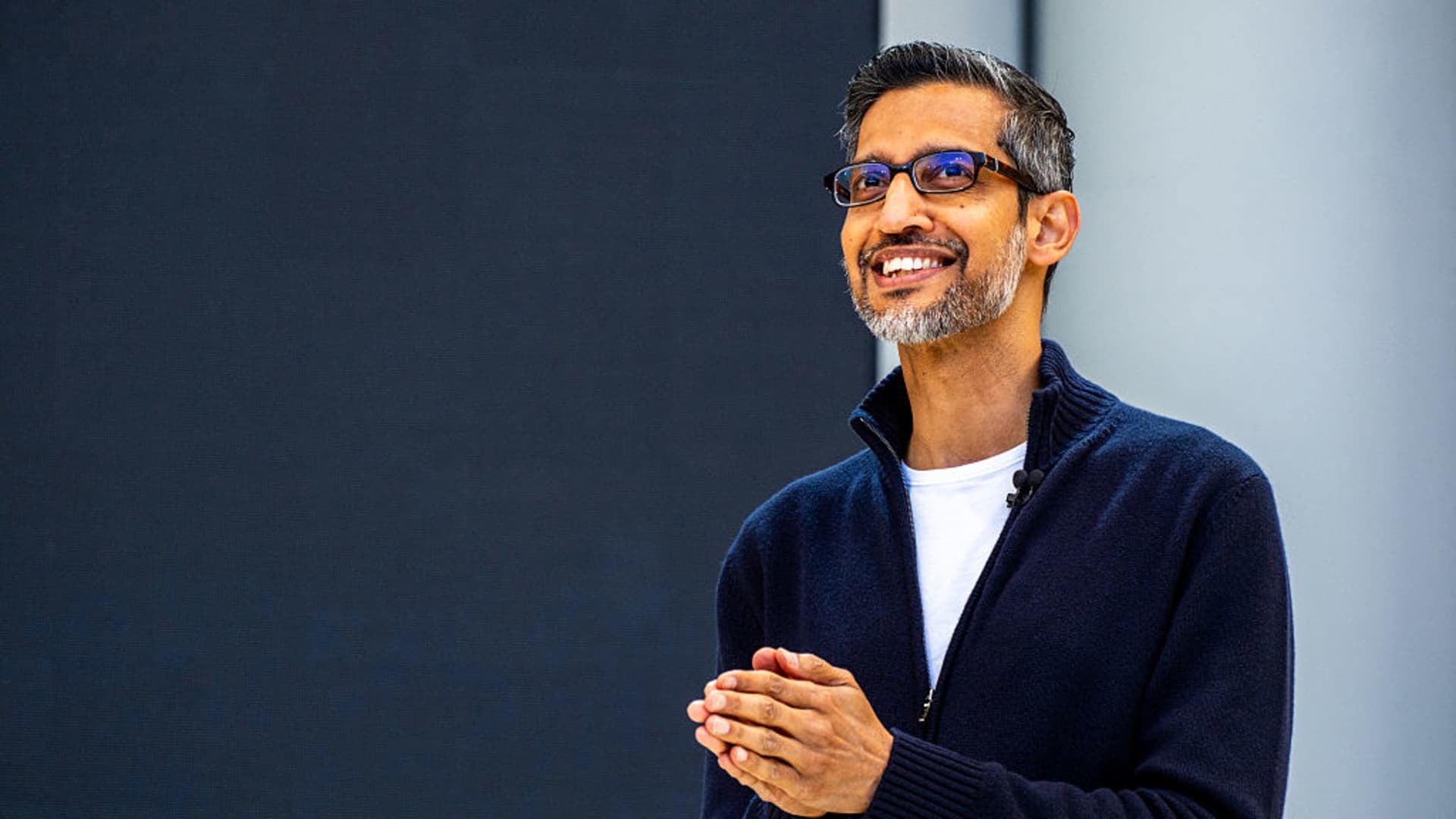“`html
Trillion Market Cap Club" src="http://aicnbc.com/wp-content/uploads/2025/09/1757948217_655_108175922-1753295096051-gettyimages-2215577882-AFP_47H33MP.jpeg">
Google CEO Sundar Pichai gestures to the crowd during Google’s annual I/O developers conference in Mountain View, California on May 20, 2025.
Camille Cohen | Afp | Getty Images
Alphabet has officially entered the elite $3 trillion market capitalization club, joining Nvidia, Microsoft, and Apple in this exclusive tier.
Shares of the tech giant surged over 4% on Monday, propelled by a confluence of factors, most notably a more favorable-than-expected resolution to a significant antitrust case earlier in September.
The early September rally stemmed from a judge’s ruling in a high-profile antitrust case, the penalties of which were perceived by investors as substantially less severe than initially feared. The U.S. Department of Justice (DOJ) had aggressively pursued a forced divestiture of Google’s dominant Chrome browser and, following a district court ruling last year that Google held an illegal monopoly in the search and related advertising markets, sought further punitive measures.
However, Judge Amit Mehta ultimately opted against the DOJ’s most drastic proposed remedies, triggering a surge in Alphabet’s stock price to a record high. This outcome was received positively enough that former President Donald Trump publicly acknowledged the company’s “very good day.” The legal decision, while not absolving Google of all wrongdoing, signaled a more manageable regulatory landscape than initially anticipated.
Alphabet’s stock is now up over 30% year-to-date, significantly outpacing the Nasdaq’s 15% gain.
This $3 trillion milestone arrives approximately two decades after Google’s initial public offering (IPO) and just over ten years after the corporate restructuring that birthed Alphabet, with Google becoming its primary subsidiary. The strategic reorganization allowed for greater diversification into other ventures, including Waymo (autonomous vehicles) and Verily (life sciences), although search and advertising remain the company’s core revenue drivers.
Sundar Pichai ascended to the CEO role at Alphabet in 2019, succeeding co-founder Larry Page. Since then, Pichai has navigated the company through a period of intense technological disruption, primarily centered around the rapid advancement of artificial intelligence (AI), while simultaneously contending with heightened regulatory scrutiny in both the U.S. and Europe.
Interestingly, the rise of AI-powered search alternatives such as Perplexity and OpenAI played an unexpected role in shaping the favorable antitrust ruling. The emergence of credible competition in the search landscape arguably tempered the perception of Google’s unassailable dominance. Moreover, Alphabet’s future aspirations as a leading AI innovator are heavily contingent on the success of Gemini, its flagship suite of AI models. Gemini’s performance and adoption will be critical in determining Alphabet’s long-term competitiveness in the rapidly evolving AI landscape. The company is betting big on AI to not only defend its existing market share but also to unlock new revenue streams and growth opportunities.
“`
Original article, Author: Tobias. If you wish to reprint this article, please indicate the source:https://aicnbc.com/9362.html

